The Stepping Stones of Infant Cognitive Development: From Newborn to Toddler
"Cognitive development is all about how babies learn, process information, and understand the world around them."

Understanding Cognitive Development in Infants
"INSERT NEW IMAGES AND ALT-TXT, PLUS AUTHOR."
-SHiNER THE HUMAN
As a new parent, watching your baby grow and develop can be an incredibly rewarding experience. One of the most important aspects of this growth is cognitive development. Cognitive development is all about how babies learn, process information, and understand the world around them. In this blog post, we will go over everything you need to know about cognitive development in infants. From defining what it is and its importance to tracking the stepping stones of cognitive development during different developmental stages out of infancy. We will also dive into theories explaining cognitive development, the impact of environment on it, common challenges that arise during this process, and ways to enhance it through activities and games. We hope this post provides valuable insights into nurturing your baby's curious mind and understanding their unique cognitive journey.
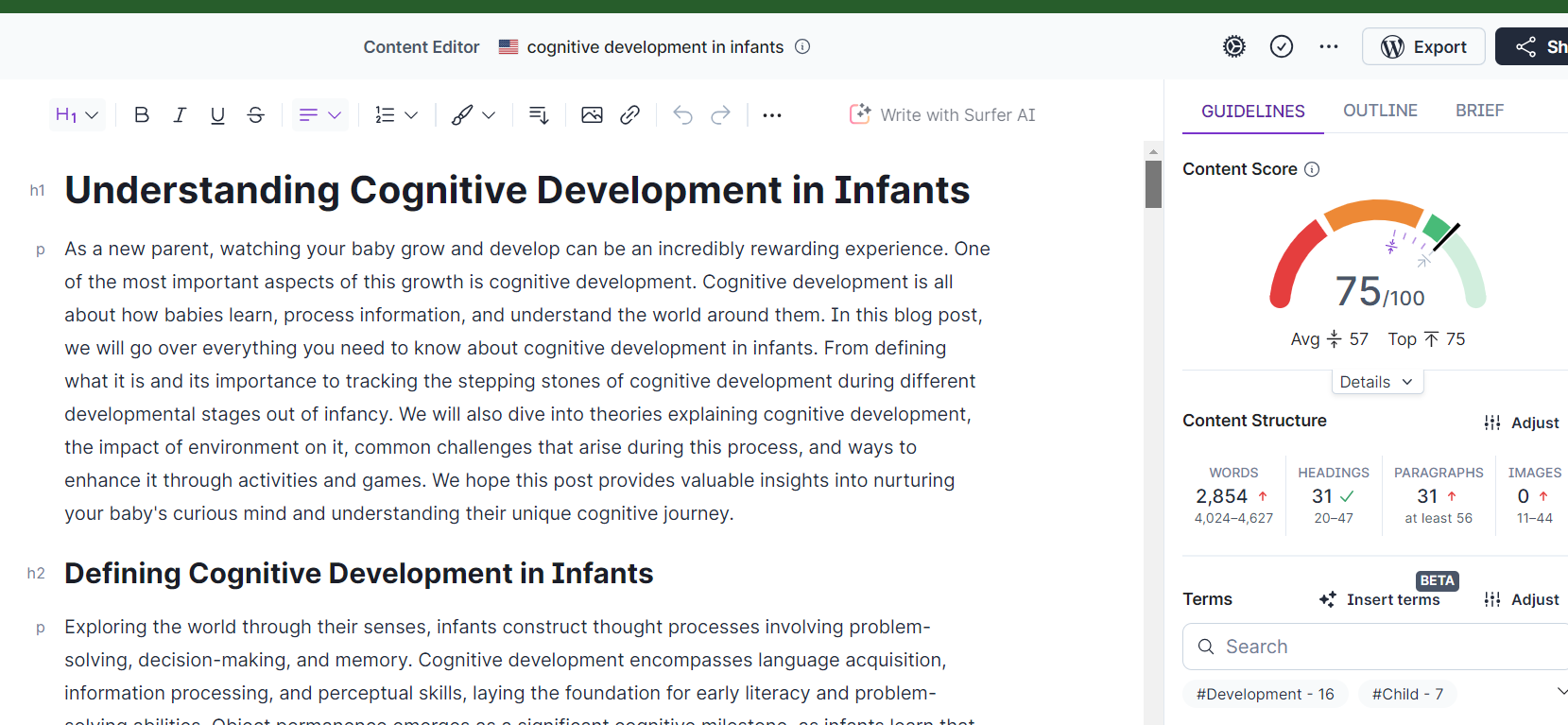
Defining Cognitive Development in Infants
Exploring the world through their senses, infants construct thought processes involving problem-solving, decision-making, and memory. Cognitive development encompasses language acquisition, information processing, and perceptual skills, laying the foundation for early literacy and problem-solving abilities. Object permanence emerges as a significant cognitive milestone, as infants learn that objects exist even when out of sight. Their cognitive skills are moulded by sensory experiences, interactions, and environmental stimuli, shaping their understanding of the world.
Importance of Cognitive Development
Laying the groundwork for future learning, social, and emotional development, early cognitive development is pivotal during infancy. It shapes a child’s capacity for reasoning, problem-solving, and grasping abstract concepts. Infants' cognitive development aligns closely with Piaget’s stages, setting the scene for mental representations, make-believe play, and early problem-solving skills. Furthermore, it significantly influences children's ability to engage in scientific reasoning, logical thinking, and acquire new skills. This developmental foundation not only impacts their present but also sets the stage for future cognitive growth, influencing their approach to formal logical operations and problem-solving in later stages of life.
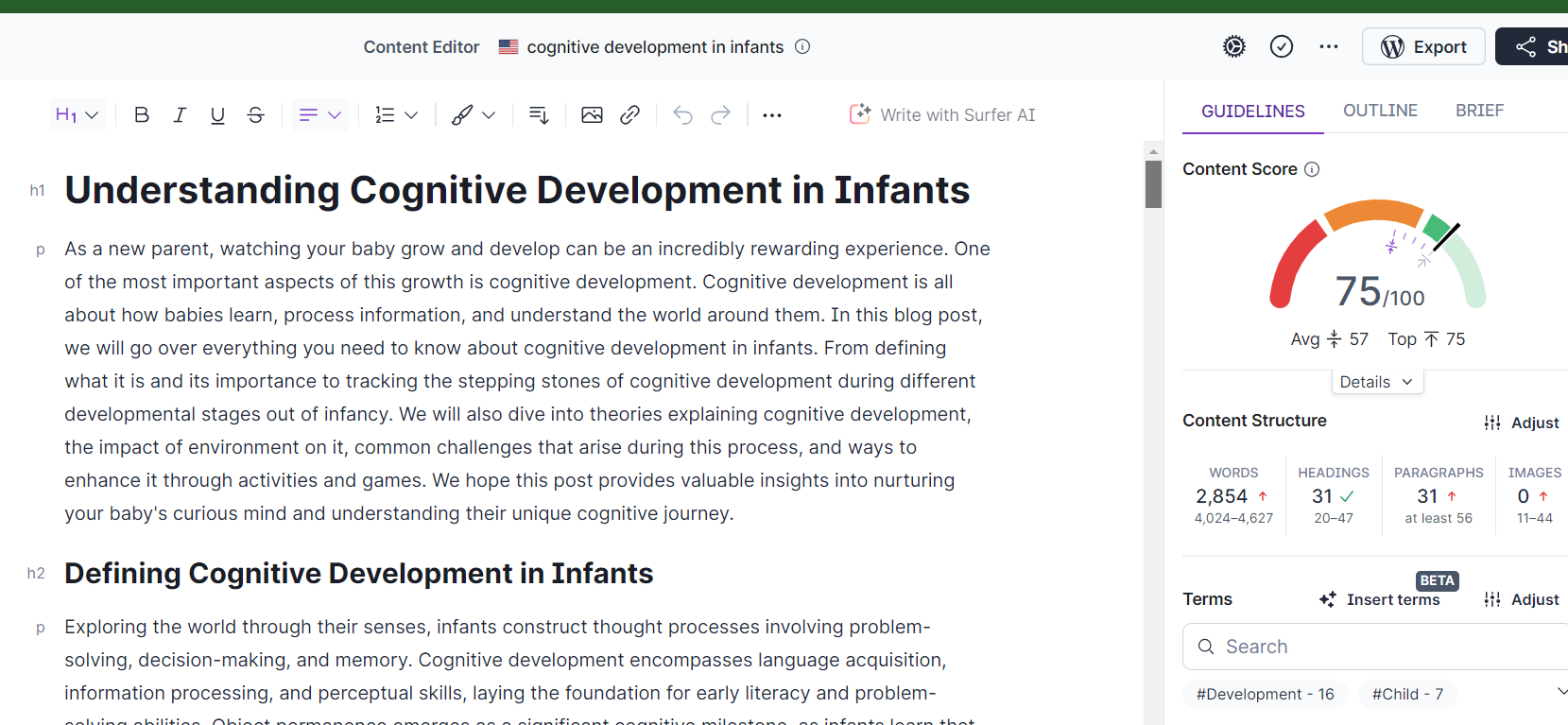
Stepping Stones of Cognitive Development
As infants progress through different stages of development, they exhibit remarkable cognitive growth. Recognizing the stages of cognitive development observed during the first 12 months of age is crucial. It lays the foundation for future learning and shapes early learning experiences. Understanding the significance of early cognitive development helps in appreciating the role of cognitive skills in shaping infants' early experiences. A child's cognitive abilities undergo significant developmental stepping stones during early childhood. This intellectual development journey is essential as it forms the basis for future learning and problem-solving abilities. Embracing this cognitive development journey is vital for understanding and supporting an infant's cognitive growth.
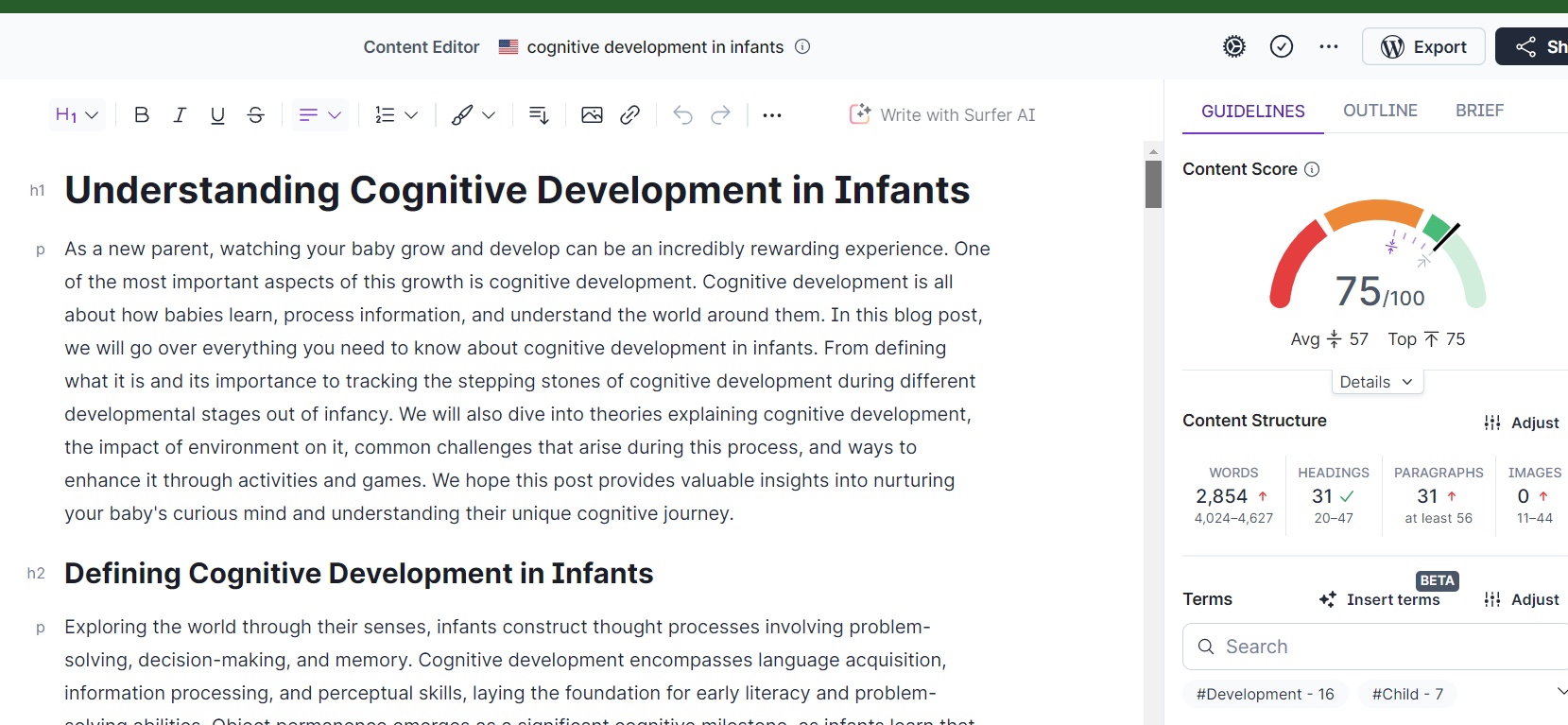
Observation during 0-12 Months
During the first year of an infant’s life, it's fascinating to observe the early signs of cognitive development, such as heightened attention and curiosity. As infants reach various cognitive stepping stones, they begin to demonstrate emerging abilities like object permanence and sensorimotor skills. The rapid cognitive progress made during this period is truly remarkable and sets the stage for future learning. It's essential to appreciate the unique ways in which infants exhibit cognitive development, offering valuable insights into their mental growth. Recognizing and embracing these early developments can provide a deeper understanding of cognitive development in infants early childhood education, paving the way for a stimulating and supportive environment conducive to their cognitive growth.
Key Developments between 12-24 Months
Between 12-24 months, it's crucial to encourage problem-solving and reasoning skills through activities and games suitable for this age group. Language development can be fostered through interactive communication and exposure to new vocabulary, enhancing the child's cognitive abilities. At this stage, children demonstrate increasing curiosity and exploration, as well as emerging cognitive skills like memory and imagination. It's important to recognize the cognitive developments, such as symbolic thinking and pretend play, during this period of cognitive advancement. Embracing these developments will support the child's cognitive growth in the long term.
Progression from 24-36 Months
As your child's development moves from 24 to 36 months, their cognitive abilities continue to expand. Supporting logical thinking and problem-solving skills through age-appropriate activities is crucial at this stage. Encouraging conversations and exposure to new ideas fosters language development. It's important to recognize the growing cognitive abilities, such as abstract thinking, during this developmental period. Embracing the cognitive advancements, including enhanced reasoning skills and cognitive flexibility, is essential for their growth. Additionally, acknowledging the progression of cognitive skills, such as scientific reasoning and understanding of abstract ideas, is vital for their overall cognitive development.
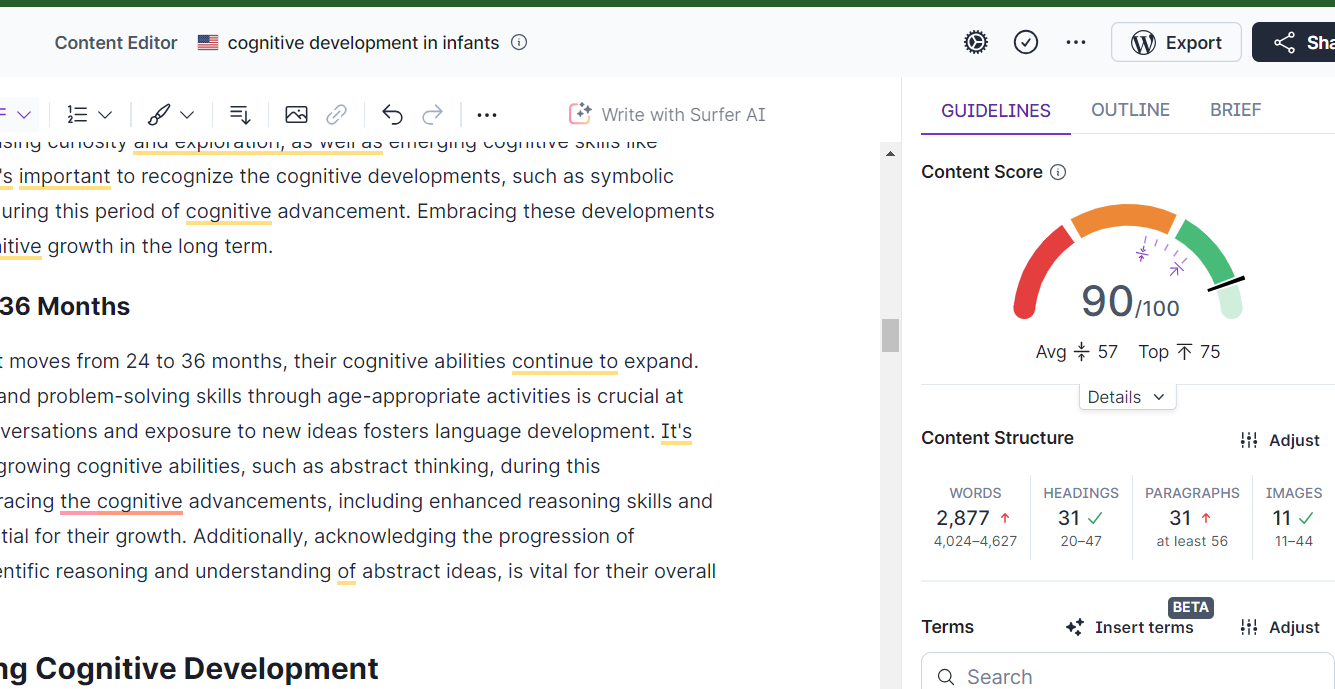
Theories Explaining Cognitive Development
Exploring various theories of cognitive development is essential. Jean Piaget's theory, Lev Vygotsky's sociocultural theory, and information-processing theories offer distinct insights into cognitive abilities at different stages of childhood development. They highlight the impact of environmental factors, individual differences, and learning tools on cognitive development, providing a comprehensive understanding of infant cognitive abilities. Understanding these theories is crucial for parents, caregivers, and educators to effectively support early childhood cognitive development. Each theory contributes unique perspectives on cognitive development, emphasizing the importance of problem-solving skills, mental representations, and environmental influences in child development.
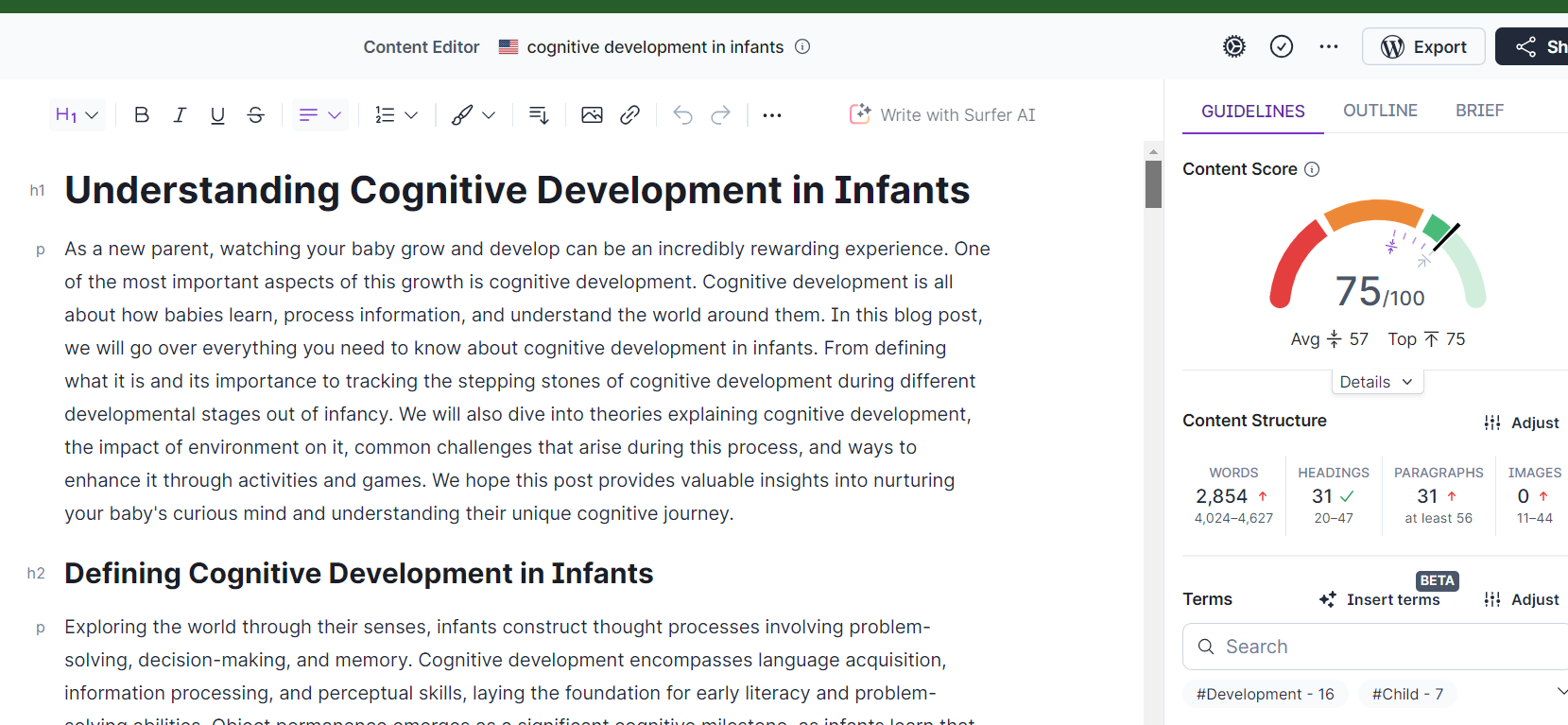
Piaget's Theory and its Relevance to Infants
Jean Piaget's theory delineates four stages of child development, spanning from the sensorimotor phase to the formal operational stage. It elucidates the progression of infants from reflexive, instinctual actions to the capacity for abstract thinking. According to Piaget, infants traverse through distinct stages of cognitive development, each characterized by novel abilities and cognitive skills. The theory underscores the significance of early experiences, sensorimotor and sensory exploration, and challenges in cognitive development. Understanding Piaget’s theory facilitates the identification of cognitive milestones, age-appropriate learning, and insights into developmental psychology in infants.
How Other Theories Compare
Comparing Vygotsky’s theory, which highlights the impact of cultural factors on cognitive development, with information-processing theories that focus on information storage and retrieval, offers diverse perspectives on infant cognitive abilities. Each theory contributes to our understanding of cognitive development, providing insights into language development, problem-solving skills, and the role of social interactions. Exploring multiple theories allows for a holistic approach to supporting cognitive development in infants, considering the influence of culture, language, and information processing on their cognitive abilities. This comparison sheds light on the various factors that shape cognitive development in infants and the need for a comprehensive approach to support their cognitive growth.
Impact of Environment on Cognitive Development
In shaping cognitive development, the environment plays a crucial role and influences language skills, problem-solving, and abstract thinking. Parents and caregivers are instrumental in providing a nurturing relationship, and stimulating environments to support cognitive development. Educational games and sensory play items are known to enhance cognitive development in infants. Creating enriching environments with opportunities for exploration and creativity fosters cognitive development. Environmental factors such as social interactions, play, and language exposure profoundly impact cognitive development during early childhood.

Role of Parents and Caregivers
Supporting cognitive development in infants is a significant responsibility for parents and caregivers. By engaging in responsive interactions and creating language-rich environments, they play a pivotal role in fostering cognitive growth. Activities such as reading aloud, interactive play, and exploration are instrumental in supporting cognitive development in infants. Additionally, providing a secure and stimulating environment can encourage cognitive development, aligning with the stages of cognitive development. Nurturing interactions, positive reinforcement, and responsive caregiving are essential for promoting healthy cognitive development in infants. Understanding the impact of parental involvement on memory development empowers parents to effectively support their child’s cognitive growth.
Influence of Learning Tools and Toys
Stimulating cognitive development in infants involves utilizing age-appropriate learning tools and toys, such as sensory play items, puzzles, and building blocks. These interactive and educational materials support problem-solving skills, language development, and overall cognitive abilities. By providing a variety of toys that encourage exploration, creativity, and problem-solving, caregivers can enhance cognitive development in infants. Furthermore, choosing toys that align with cognitive development stages aids in promoting age-appropriate cognitive skills, ultimately contributing to the holistic development of the child.
Cognitive Development Challenges
Recognizing potential cognitive development challenges in infants proves crucial for early intervention and personalized support. Understanding the indicators of learning disabilities, developmental delays, and cognitive developmental disorders is vital for prompt identification. Seeking professional assistance ensures appropriate interventions and tailored support for infants, mitigating long-term impacts on cognitive abilities and learning. Identifying challenges early empowers parents, caregivers, and educators to create personalized interventions and support structures, fostering healthy cognitive development.
When to Seek Professional Help
Seeking professional assistance becomes imperative if infants persistently exhibit challenges in cognitive development. Addressing these issues during early adolescence is crucial for providing timely interventions and seeking support from experts such as child psychologists and developmental specialists. Recognizing and addressing cognitive development challenges at an early age promotes healthy cognitive development in infants, ensuring optimal growth. Consulting with professionals can offer valuable insights and interventions, facilitating the identification and guidance necessary for supporting infants' cognitive development. It is essential to be proactive in seeking professional help to mitigate long-term impacts on cognitive abilities and ensure tailored interventions.
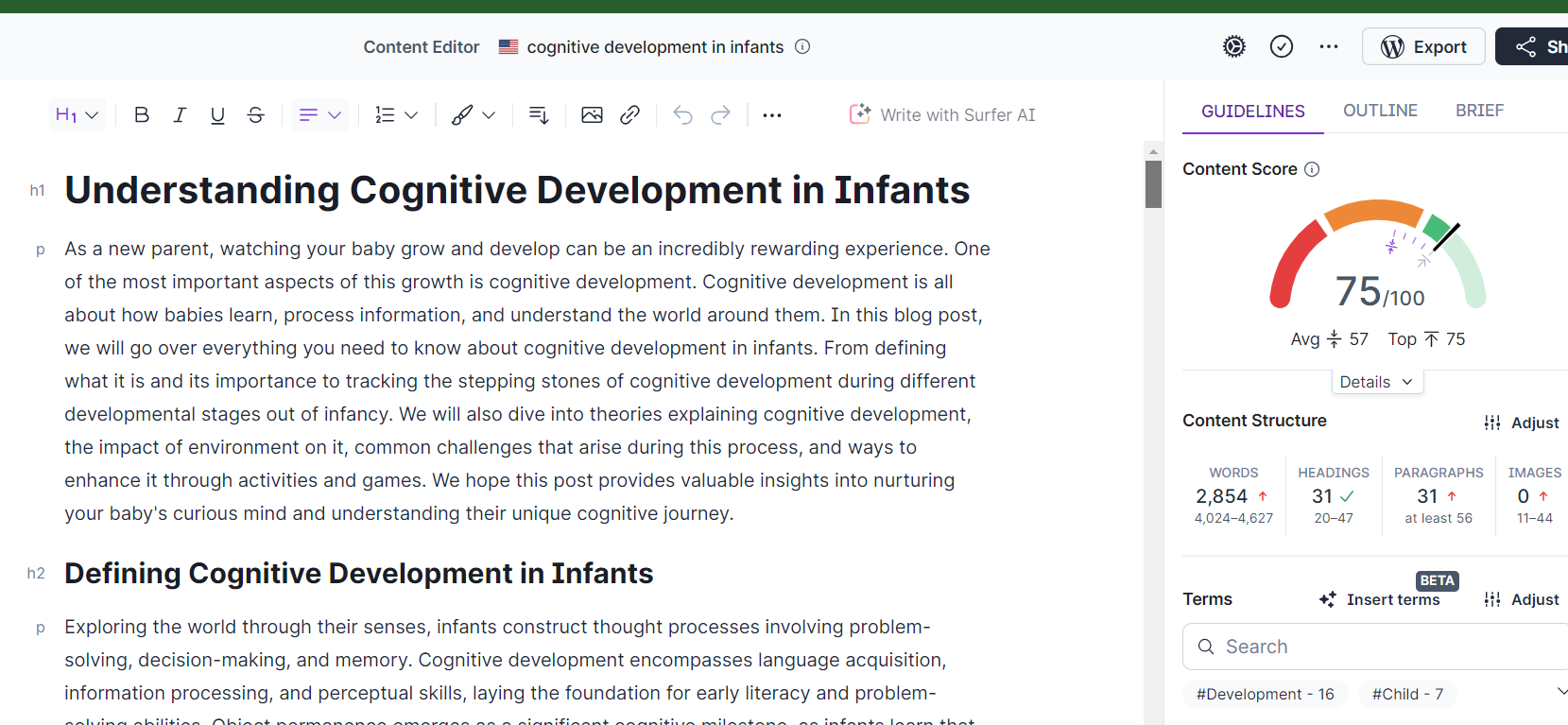
Enhancing Cognitive Development
Encouraging cognitive growth in infants involves engaging them in simple, age-appropriate games to stimulate their thinking. It also includes fostering language development through read-aloud sessions to nurture early literacy skills. Providing toys and activities appropriate for their age is essential for promoting sensorimotor stage development. Creating a stimulating environment supports brain development during the early stages of cognitive growth. Additionally, fostering pretend play can enhance mental representations and cognitive abilities.
Activities and Games for Stimulation
Engaging your infants and toddlers in age-appropriate puzzles and shape sorters fosters problem-solving skills. Peek-a-boo games support the development of object permanence, while encouraging exploration of different textures and sensory experiences contributes to cognitive growth. Interactive play with building blocks enhances young children's cognitive abilities, and age-appropriate books and interactive toys promote language development. By implementing these activities, parents can actively participate in their child's cognitive development, fostering a supportive learning environment to nurture their growing minds.
How can parents foster cognitive development in their infants?
To foster cognitive development in infants, parents can provide hands-on exploration opportunities, encourage social interaction with peers, and create an environment that stimulates curiosity and problem-solving skills. Engaging children in age-appropriate activities and utilizing everyday experiences as learning opportunities also promote cognitive growth.
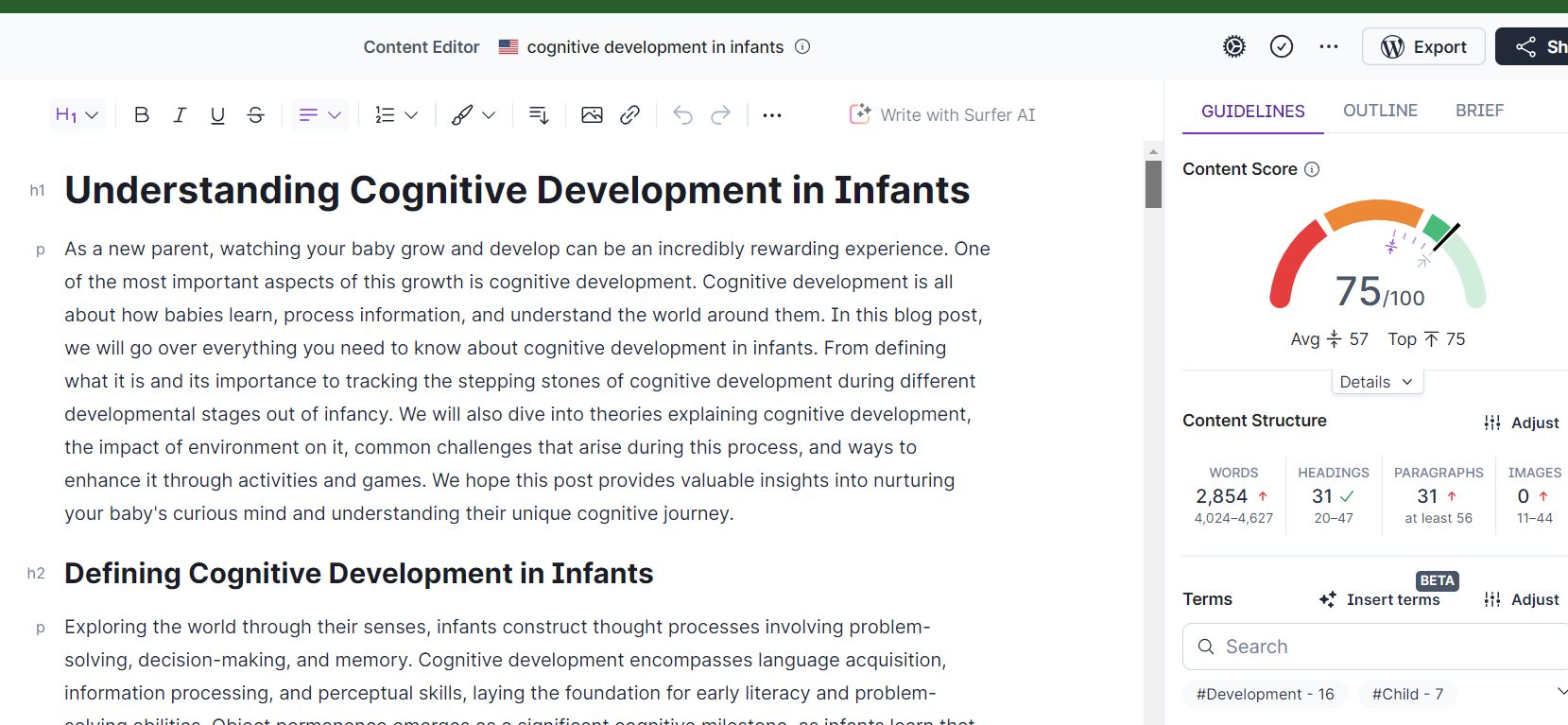
The Curious Mind of an Infant
The early years of a child's life are filled with curiosity and a thirst for exploration. Infants naturally gravitate towards discovering their surroundings and soaking in new information through tactile and sensory experiences. These hands-on interactions play a significant role in their cognitive development, laying the foundation for future abilities and problem-solving skills. It's crucial to understand that an infant's environment and early experiences are pivotal in shaping their cognitive development, making each interaction and stimulus influential. Embracing the unique ways in which infants perceive and interact with their environment provides insight into their cognitive processes, offering a personalized approach to nurturing their inquisitive minds.
Exploring the Known and Unknown
Encouraging infants to explore new environments and objects is crucial for stimulating cognitive development. By supporting them in making new mental representations through exposure to various stimuli, you are helping them build a foundation for cognitive growth. Additionally, fostering cognitive development by allowing infants to engage in problem-solving activities is essential for their cognitive advancement. Providing opportunities for infants to discover and learn about their surroundings aids in their cognitive development. It's important to appreciate the significance of cognitive development in infants' early learning experiences, as these experiences shape their future abilities and perceptions. Embracing their curiosity and eagerness to explore the world around them is key to nurturing their cognitive growth.
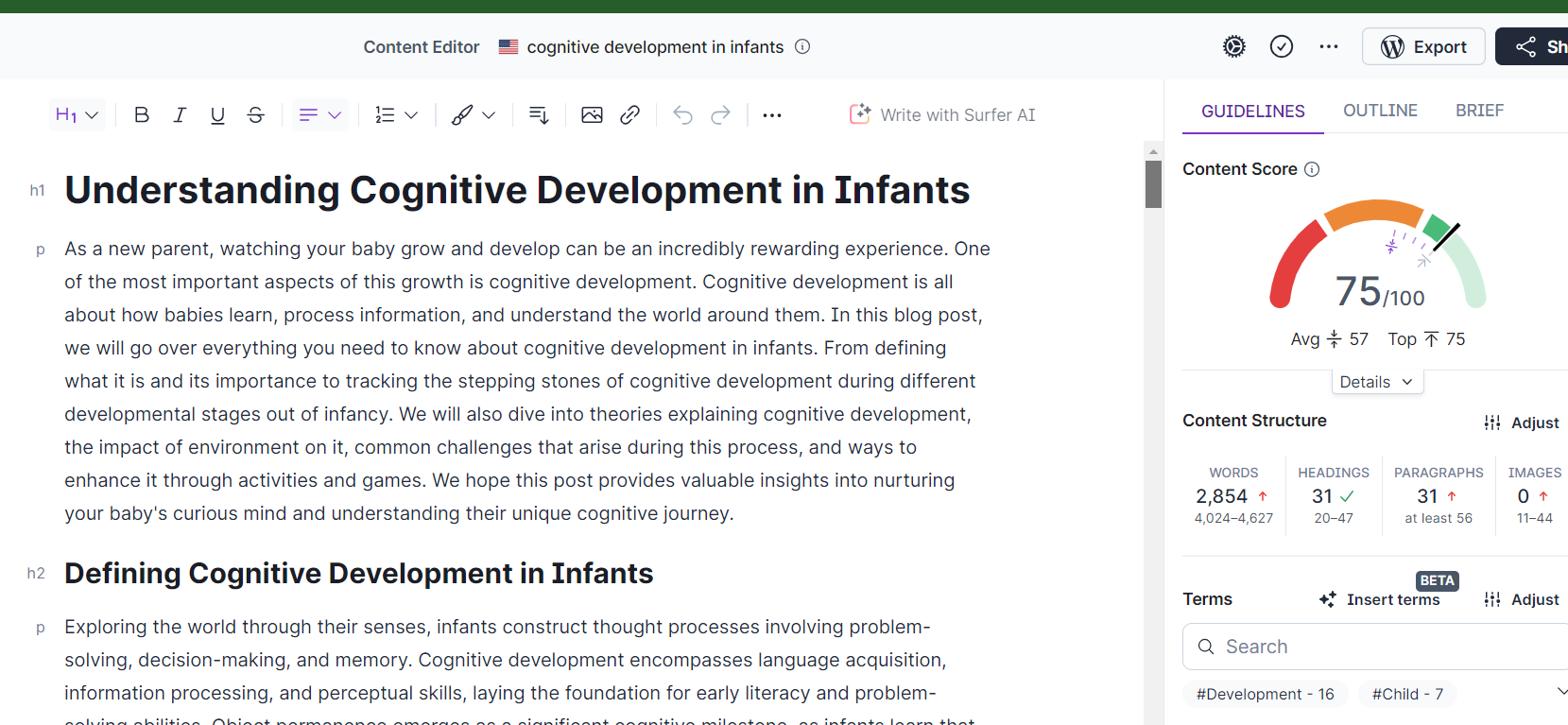
Nurturing Your Baby's Cognitive Growth
Understanding and appreciating the unique cognitive abilities and developmental pace of each infant is crucial. Environmental factors play a significant role in shaping cognitive development, highlighting the importance of creating a nurturing and supportive environment for infants. Early childhood experiences have a profound impact on cognitive abilities, and developmental delay, emphasizing the need to embrace and support the journey of cognitive development in infants. This personalized approach fosters cognitive growth and lays the foundation for future cognitive abilities, acknowledging the individuality and significance of each child's cognitive development journey.
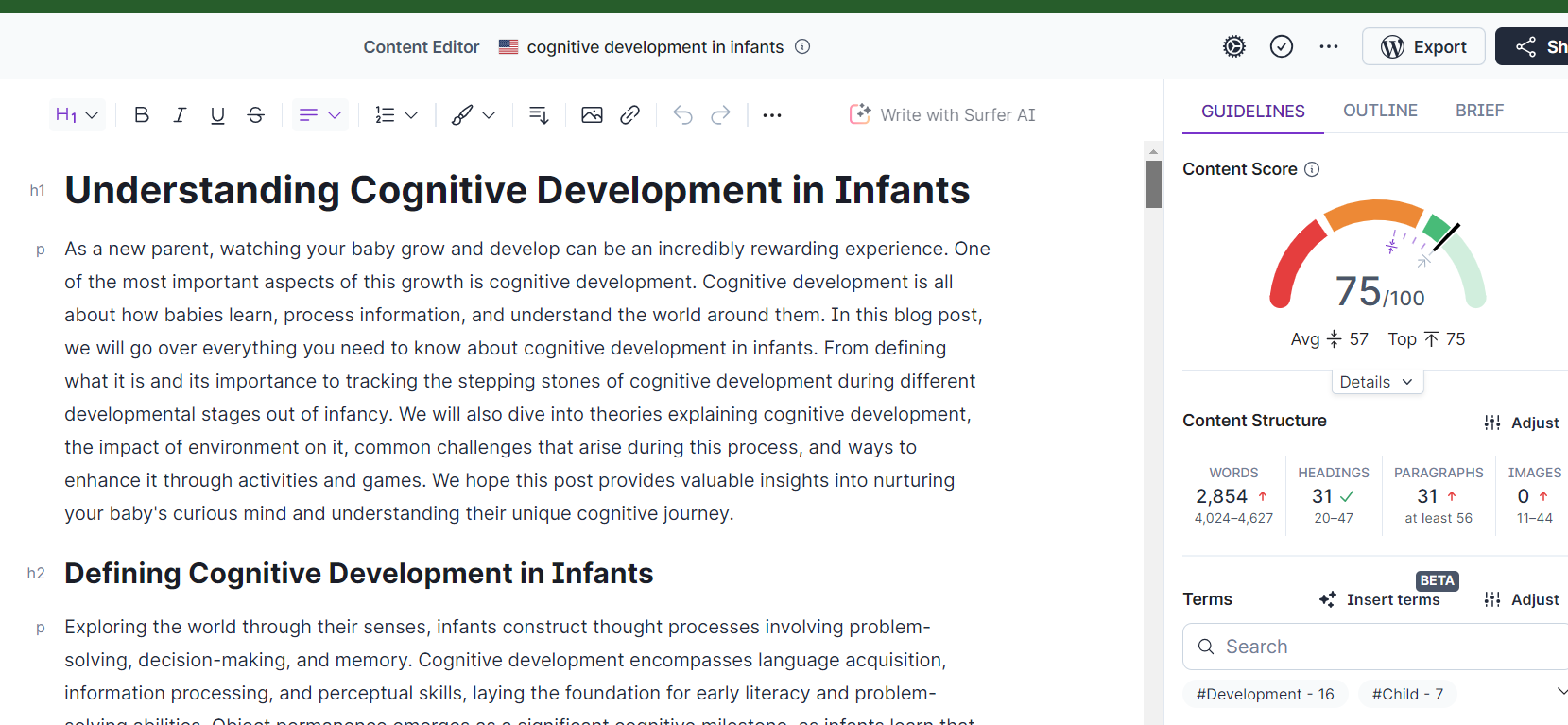
Stages of cognitive development in infants
Infants begin their cognitive development by engaging in the sensorimotor stage, where they learn and explore through their senses and movements. As they progress, cognitive skills like object permanence start to develop during early childhood, allowing them to understand that objects still exist even when out of sight. Moving into the preoperational stage, infants demonstrate cognitive abilities through pretend play and mental representations. Subsequently, as they reach the concrete operational stage, they become adept at solving simple problems logically. This progression in cognitive development aligns with Piaget’s theory, which outlines the stages of cognitive development in infants, emphasizing their evolving cognitive abilities and understanding of the world around them.
Factors that influence cognitive development in infants
Environmental factors, such as early literacy skills, have a significant impact on infants' cognitive development, shaping their learning abilities. Vygotsky's theory underscores the role of language development and social interactions in fostering cognitive growth, highlighting the importance of a supportive adolescent health and social environment. Individual differences among infants play a crucial role in their cognitive development, acknowledging the unique pace at which each child acquires cognitive abilities. Erikson's theory emphasizes the influence of social development on cognitive growth, emphasizing the need for a nurturing and encouraging social environment. Moreover, the mental health of caregivers can significantly influence infants' cognitive development, underscoring the importance of a supportive and healthy caregiving environment.
Frequently Asked Questions
What is cognitive development and why is it important for infants?
Cognitive development in infants refers to the process of acquiring knowledge and understanding through thought, experience, and senses. It is crucial for their future learning, problem-solving, and social interaction skills. This includes language acquisition, memory, attention span social cognition, and perception. Providing a stimulating environment with age-appropriate activities can support their cognitive development.
What are some common stepping stones in cognitive development during the first year of life?
During the first year of life, infants go through several important milestones in cognitive development. Around four months, they start understanding object permanence. Between six to eight months, cause-and-effect relationships become apparent to them. At nine months, they begin exploring their surroundings through crawling. By the end of the first year, they can recognize familiar faces and objects.
What are some common stepping stones in cognitive development during the second year of life?
During the second year of life, infants reach significant milestones in their cognitive development. They begin to understand cause-and-effect relationships, develop object permanence, engage in symbolic play, and experience accelerated language development.
What are some common stepping stones in cognitive development during the third year of life?
By the end of their third year, toddlers undergo significant cognitive development. They develop a sense of object permanence and understand basic cause-and-effect relationships. Their vocabulary expands rapidly, and they begin using more complex sentences. Additionally, they start developing self-awareness and empathy towards others.
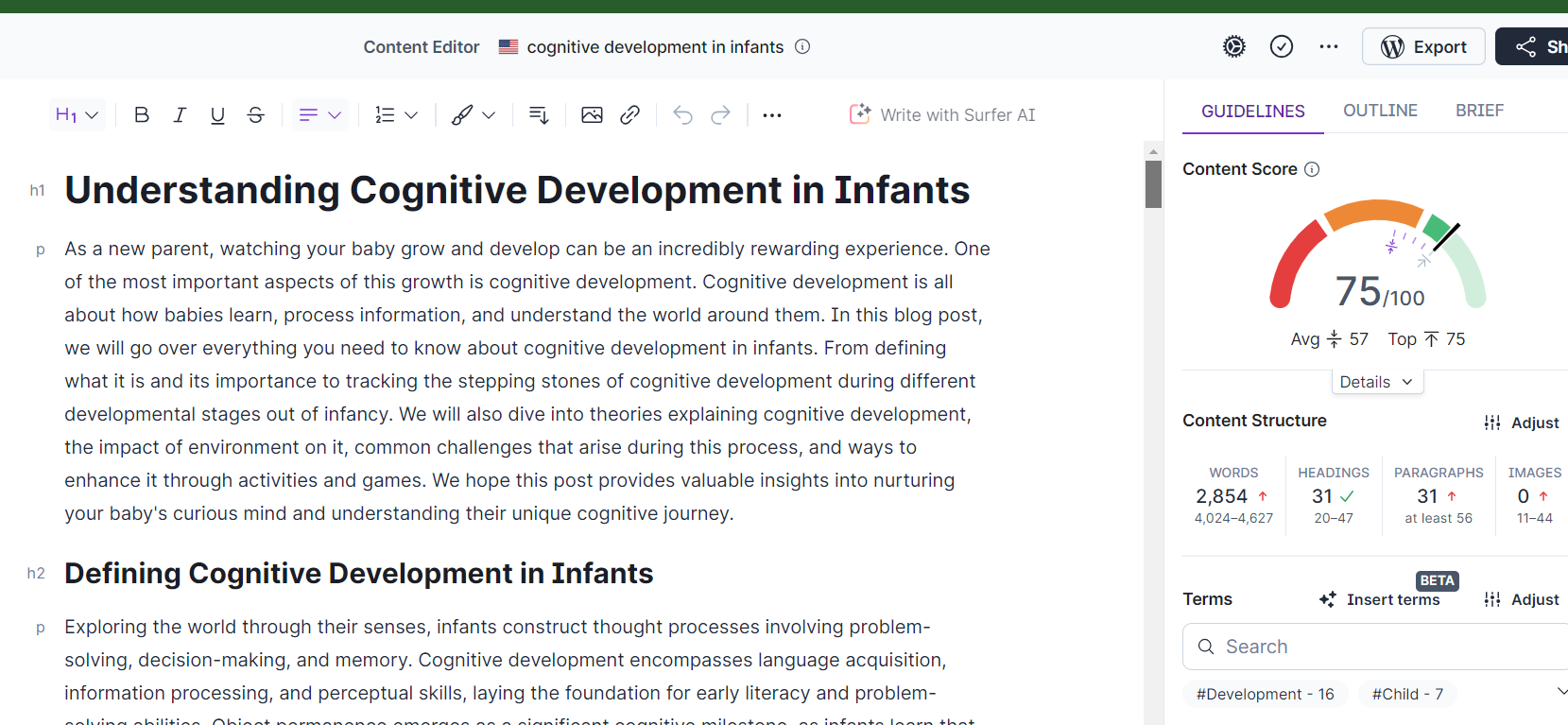
How can parents or caregivers support and encourage cognitive development in infants?
Parents and caregivers can support and encourage cognitive development in infants by incorporating daily reading, interactive play, and a stimulating environment. Talking to infants frequently and providing opportunities for exploration and discovery are also crucial.
Are there any red flags or warning signs to look out for in terms of cognitive development in infants?
Signs to watch for in infants' cognitive development include delayed or absent responses to sounds and voices, difficulty making eye contact or responding to facial expressions, and struggles with basic motor skills. If you have concerns, consult a pediatrician.
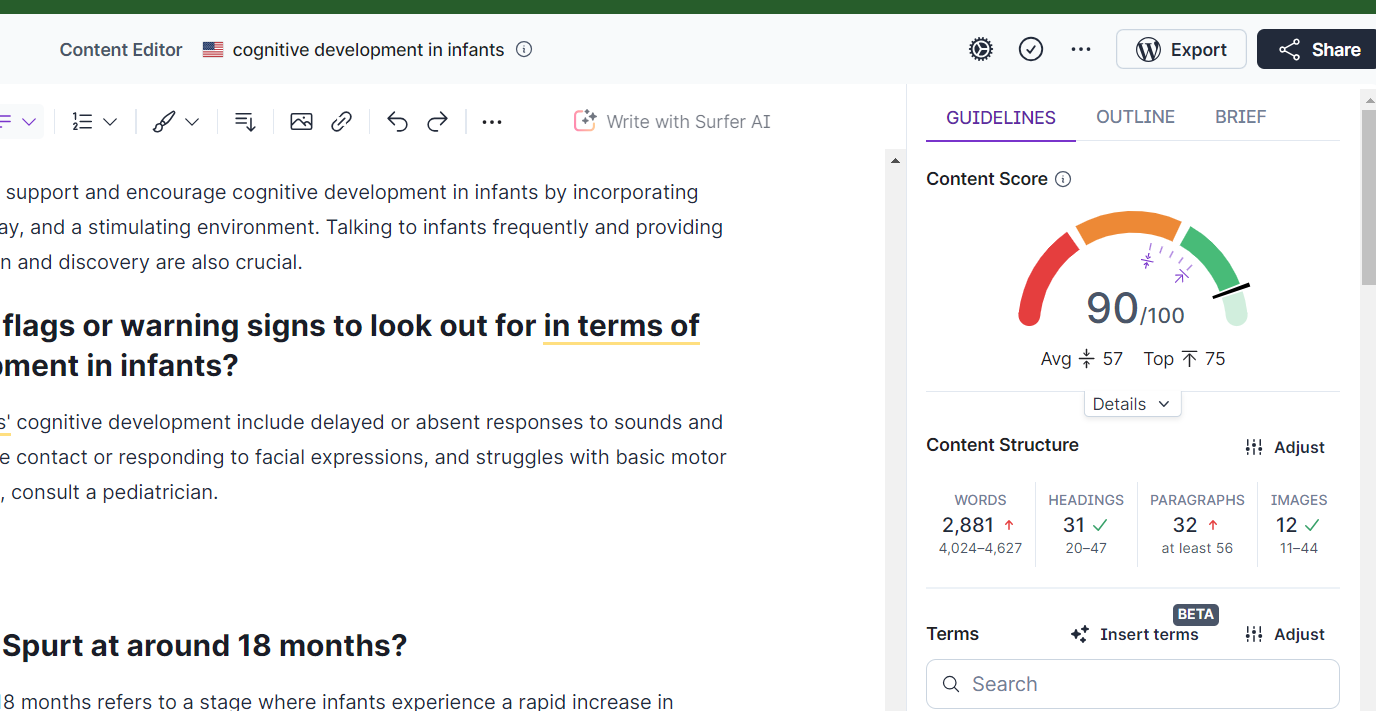
What is the Word Spurt at around 18 months?
The Word Spurt at around 18 months refers to a stage where infants experience a rapid increase in vocabulary. During this time, they may learn up to 10 new words per day and show an improved understanding of syntax and grammar. Parents can support language development by frequently talking and reading to their child.
Conclusion
Cognitive development in infants is a fascinating and critical process that lays the foundation for future learning and growth. From observing their surroundings to exploring the unknown, infants go through various stages of cognitive development. Parents and caregivers play a crucial role in nurturing their baby's cognitive growth by providing a stimulating environment and engaging in activities and games that promote learning. Understanding the impact of the environment and learning tools on cognitive development is essential. Additionally, recognizing potential challenges and knowing when to seek professional help is crucial for ensuring the best outcomes for infants. As parents, it's important to embrace the curiosity of your baby's mind and create an atmosphere that encourages exploration and discovery. By fostering cognitive development from an early age, you are setting your child up for a lifetime of learning and intellectual growth.
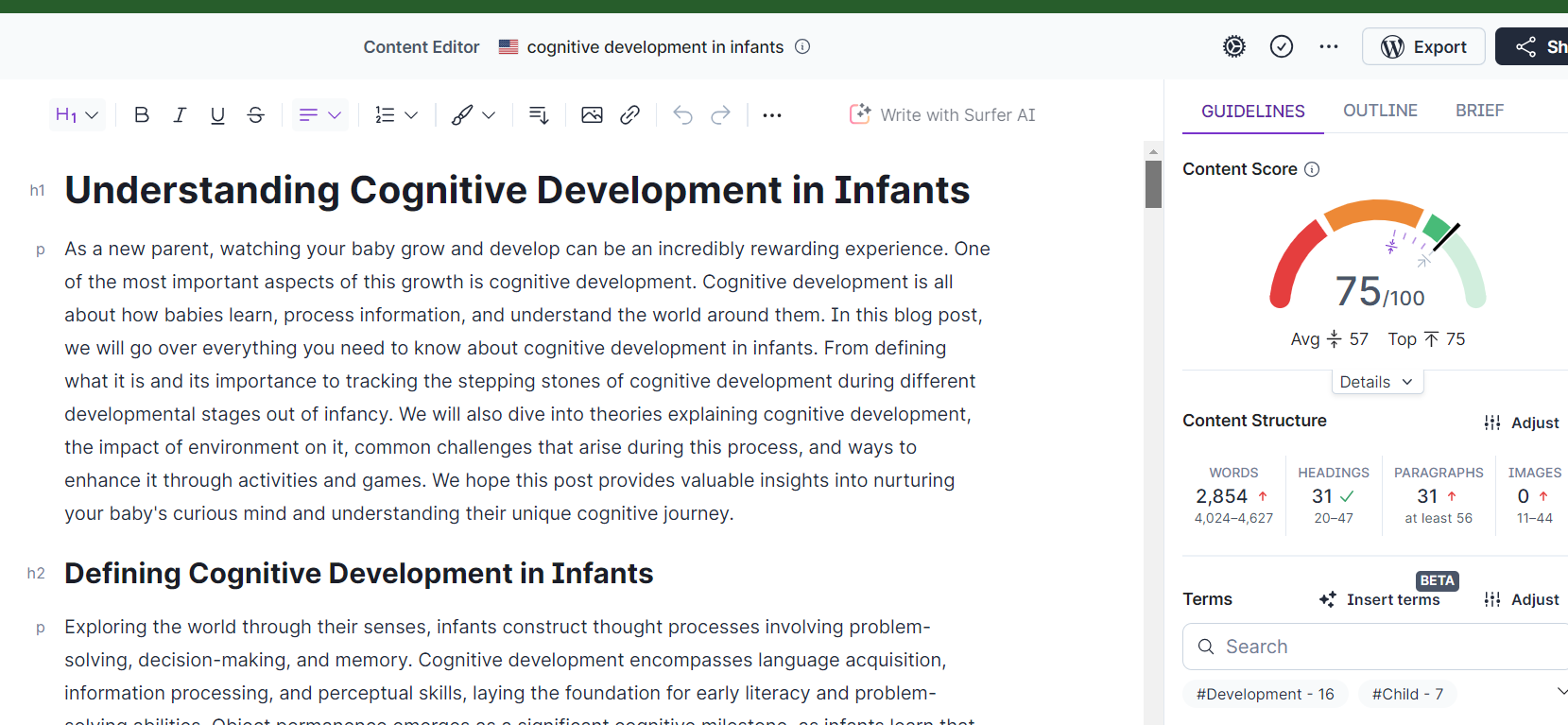





Comments ()